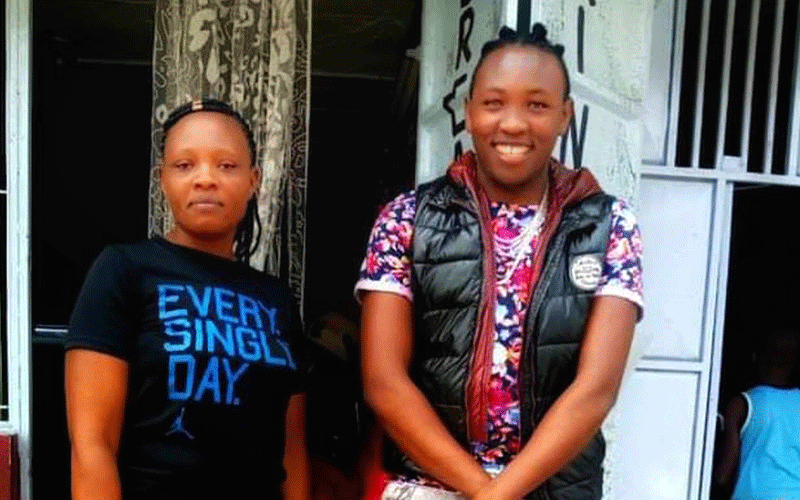From selling chang’aa to winning souls
By Harriet James, November 11, 2020
Harriet James @harriet86jim
“When we found that our mum was pregnant, my siblings and I were so impatient that we couldn’t wait to hold our little brother in our arms.
One day we came back home from school only to learn that mum had given birth on her way to the hospital,” begins Teresiah Waithera, the eldest sister to award winning gospel artiste Kevin Maina aka Chicha Musiq
Teresiah and Kevin have an 11-year age gap. She recalls how her brother had the looks of a girl as a baby and how she played with him when he was young.
Kevin, she says, brought joy in their home and was a cooperative boy. Looking back at how far he has come with his music and the awards his younger brother has won, such as being named Gospel Artiste of The Year in Xtreem Awards last year makes her one proud big sister.
However, Kevin’s childhood was characterised by poverty. The family lived in Murang’a, but when he was around seven years old, they moved to Nairobi.
Biting poverty
“Kevin loved football and was great at it. He joined Mathare Youth Sports Association (MYSA).

His team participated in local and international football events. He was part of the team that played for Norway Cup in 2006,” Teresia says.
The 24-year-old attended James Gichuru Primary School, Nairobi, then joined Murang’a High School before transferring to Anointed High School in Kariobangi, Nairobi in 2009. It is in secondary school that his passion for music was born and he started writing songs.
Soon after his secondary education in 2010, Kevin and his friends began selling chang’aa in Mathare for a living, though he was still an active member of the church. To date, he regrets doing it.
“This is one thing he regrets since he feels responsible for making his customers slaves of alcohol. Things poverty makes you do…,” poses Teresia.
He left chang’aa business in November 2015 after he got a job as an M-Pesa agent at a shop in Dandora.
However, three months later, he was robbed at gun point at the M-Pesa shop and the owner, instead of understanding, forced him to pay for the stolen cash with his salary, which was around Sh4,000.
“His salary was Sh4,000. His house rent was Sh3,000. The only option for him was to quit his job and look for another one,” Teresia recalls.
He got another job in Kayole at his brother-in-law’s electronic job, but he quit after four months due to low wages.
Kevin later met a friend who worked in a salon who sympathised with him and taught him how to make dreadlocks.
With his new salon job, he would raise Sh300 per day and that was enough for him to cater for his needs.
Kevin opted to work to raise money to record his songs. In 2013, he raised enough money for an audio, but still needed money to release a video.
“Kevin had never met anyone so kind like his salon friend. That man helped him a lot. Kevin ensured that he gave his best shot in the job and cultivated a good relationship with his clients,” says Teresah
In 2016, Kevin managed to record three music videos. Being a Gospel artiste, Kevin draws his inspiration from the word of God and real life situations.
“The far he has come, he thanks God. People might lack faith in gospel artistes, but not in the Word. He sings and raps about the word of God and not himself,” she says.
His stage name is derived from the fact that all his life he has been a footballer and his teammates nicknamed him after the Manchester United player Chicharito.
Valuable lesson
“Fans categorise him as a hip hop artiste, but in real sense he is versatile,” she reveals
Last year was good to Kevin. He was named Hip Hop artist of the year with his song Toka Teke at the Xtreem weekend awards.
His song dubbed, Share has been nominated as the afro pop song of the year while another one, Club au Kanisa, has been nominated as the hip hop song of the year.
“It feels like sleeping in the ghetto and waking up in State House in a king size bed. That’s how he felt, especially having won against great artistes made him feel so loved,” she adds.
Even with the awards, Kevin still acknowledges that recording is expensive for upcoming artistes. He advises them not to rely on music as the only source of income, but to always have side hustles.
Another challenges he faces is that some DJs don’t playing music by upcoming artistes. Also, Covid-19 is not making things easier for musicians who rely on events.
“Social distance, curfew hours, no shows… no nothing, the situation is horrible. He was supposed to launch a recording studio, LT Studios, but it’s late now and in December, he plans to tap new talent,” Teresia reveals.
He desires to make more good music, own a big recording label, help countless upcoming artistes and also bring a positive change in the society.